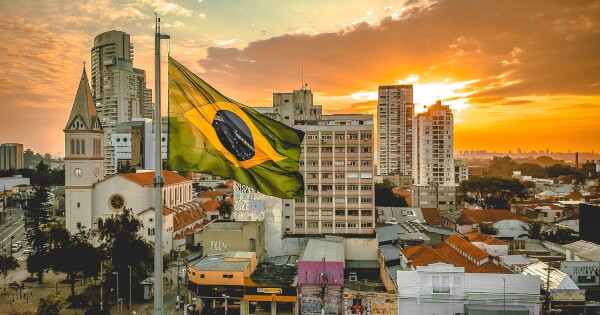
Source: blockchain.news
Coinbase CEO Brian Armstrong suggested that Brazil and Argentina should switch to Bitcoin (BTC) as the national currency, since Brazil and Argentina began the preparatory work for a possible common currency. This sparked a variety of discussions about the viability of Bitcoin (BTC) as a national currency. The Argentine peso and the Brazilian real will remain legal tender in both countries until a single currency can be established between them. The two South American nations made the announcement on January 22 that they are beginning to plan for the creation of a joint currency.
The action may result in the formation of the second largest currency bloc in the world.
Armstrong immediately took to Twitter when the news broke to propose that Bitcoin would be the “perfect long-term bet” and to ask whether or not the two governments would take it into consideration.
Raoul Pal, founder and current CEO of Global Macro Investor, was against the plan.
According to Pal, it is not optimal to have a national currency that “goes down 65% during the weak part of the business cycle and appreciates 10 times during the strong half of the cycle.”
The CEO noted that companies would have trouble preparing and covering themselves in this case due to the current climate. There were only a few in the village who shared Pal’s opinion.
One person on Twitter claims that the only viable use for bitcoin is as a store of wealth, comparable to gold.
They posted the following on their Twitter account: Meanwhile, another Twitter user mentioned the slow rate of transactions on the Bitcoin network and complained that they would take too long for daily use.
However, this was quickly refuted by another community member who claimed that Bitcoin would become the “best medium of commerce” after the Lightning Network is completed. Armstrong’s statement may have been motivated by the fact that El Salvador, another Latin American nation, recognized bitcoin as a form of legal money in 2021.
The action resulted in several positive results for the nation, one of which was an increase in tourism next year, totaling 1.1 million visitors to the nation.
Additionally, El Salvador was able to use the proceeds from its Bitcoin purchases to finance the construction of schools and a veterinary hospital.
Brazil and Argentina are no strangers to digital assets.
On November 29, the Brazilian Chamber of Deputies approved a bill that enables the use of cryptocurrencies as a form of payment in the nation.
Although the new legislation recognizes cryptocurrencies as a mode of payment, it does not make any particular legal tender a cryptocurrency within the country.
Read More at blockchain.news